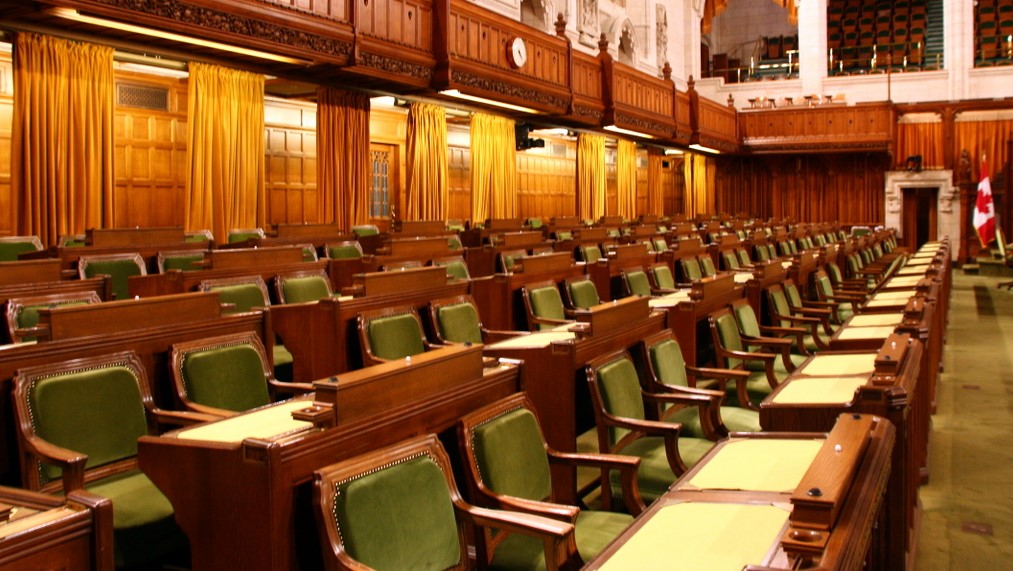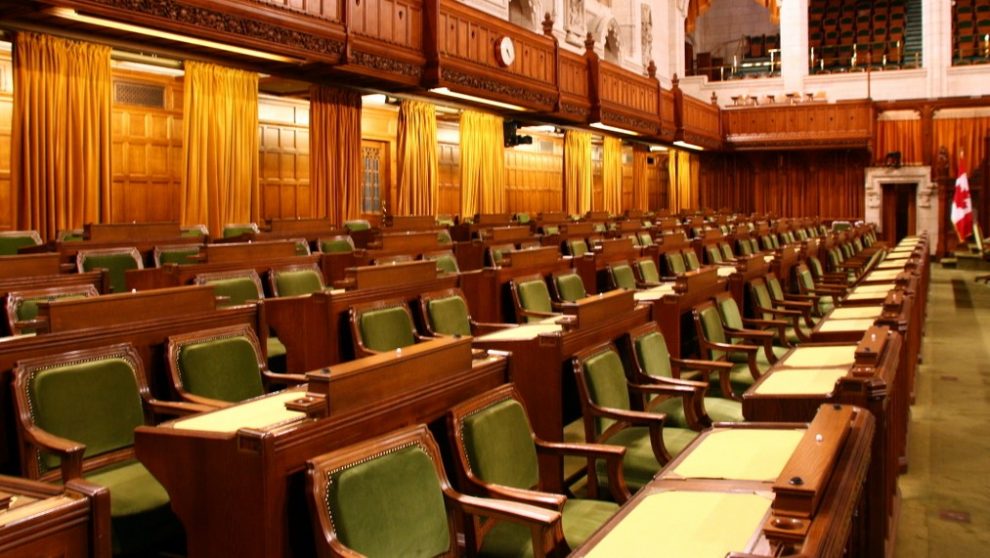Updated
Emergency meeting in the House of Commons
MPs discussed Canada's reponse to the United States' travel ban

caption
Canadian House of Commons
caption
Canadian House of CommonsUPDATE, Jan 31, 2017, 11:05 pm AST
At the emergency meeting, NDP MP of Vancouver East Jenny Kwan once again asked for an action plan in the aftermath of Donald Trump’s executive order. Kwan recommended lifting the cap on privately sponsored refugees, fast-tracking refugees that have already been screened in the U.S. and suspend the Canada-US Safe Third Country Agreement.
Both Kwan and federal NDP leader Thomas Mulcair called Trump’s immigration policy “racist”.
Liberal Immigration Minister, Ahmed Hussen, defended his party’s current immigration plan saying it was already at a historic high. He said there was no plan to increase the 2017 immigration cap which is set at 40,000 refugees.
Hussen also reaffirmed that the Canadian government has received word from Washington that Canadians with dual citizenship will be allowed in the United States.
He also pointed to a recent Reuters article that reports that the Trump administration will allow 872 refugees into the country. “It suggest that the situation continues to evolve and we will continue to assess the impacts of that,” says Hussen.
On the question of the Safe Third Country Agreement, Hussen says that “the conditions of that agreement continue to be met.”
On Friday night, U.S. President Donald Trump signed an executive order banning travel to the United States for citizens of Iran, Iraq, Libya, Syria, Yemen and Somalia. Some Haligonians want Prime Minister Justin Trudeau to speak up against the ban.
The executive order has drawn a lot of criticism in the U.S., giving rise to multiple protests at airports across the country.
The international community has also been vocal with many foreign leaders openly condemning the travel ban.
Canada’s response so far has been more subdued. Prime Minister Justin Trudeau tweeted this Saturday afternoon:
To those fleeing persecution, terror & war, Canadians will welcome you, regardless of your faith. Diversity is our strength #WelcomeToCanada
— Justin Trudeau (@JustinTrudeau) January 28, 2017
Vancouver East’s MP Jenny Kwan has been critical of Trudeau’s response and, in a conference today, said that “words are not enough.”
Calling for urgent suspension of safe 3rd country agree't, lift 1k cap on priv sponsor refgs & other key measures. Words & tweets not enough
— Jenny Kwan (@JennyKwanBC) January 31, 2017
She is the one who requested the emergency meeting. Kwan says that the meeting will hopefully push the federal government to be more proactive and clarify what the travel ban means for Canadian citizens.
One of the issues that will be debated tonight is the Safe Third Country Agreement. It has been in effect since 2004, and prevents refugees in the U.S from asking for asylum in Canada.
Lee Cohen, a long time immigration lawyer in Halifax, thinks the executive order issued Friday is “outrageous, dangerous and extremely worrisome.”
Cohen has a lot of experience helping clients immigrate to Canada and is getting calls from Americans trying to renounce their U.S. citizenship.
He says that Canada should do everything it can to help anyone trying to get asylum here.
“In this current time of crisis, when genuine refuges who are currently in the United States and fearing that they may be removed from the States, they absolutely should have access to Canada and to have access to Canada unrestricted,” he says. “The safe third country rule must go.”
“The purpose of the rule is to discourage people from asylum shopping and to seek asylum in the country they are located, if it’s a safe country,” says Cohen.
Since Sunday, the Canadian Civil Liberties Association has been asking Canadians to contact their member of parliament to push Canada to act on the U.S. travel ban and abolish the Safe Third Country Agreement.
Many Canadians took them up on that opportunity and Allison Lindsay is one of them. She hopes others in Halifax will do the same.
“I think it’s a great thing to get out and to rally and to stand together with communities,” she says. “But unless you put (on) that pressure and let those people that represent you know what your thoughts are, then they can’t speak for you.”
Lindsay says that she likes the initial response from Trudeau and the federal government, but hopes Canada will be more proactive and condemn Trump’s executive order.
“I hope to continue to see Canada and especially Justin Trudeau really take a hard stand against this, not be bullied and continue to provide shelter and refuge to those who need it,” she says.
The debate will take place at 8:30 p.m. Atlantic time. It can be viewed on C-PAC and on the web at: http://www.cpac.ca/en/.

